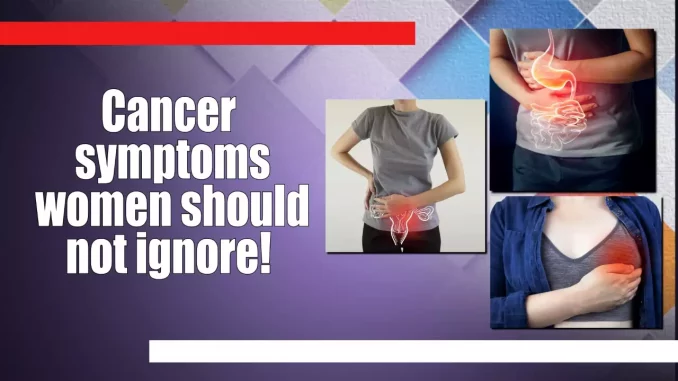
Cancer refers to any of a number of diseases characterized by the development of abnormal cells that divide uncontrollably and have the ability to invade and destroy normal body tissue. Cancer can often spread throughout the body.Cancer symptoms
the second leading cause of death worldwide. However, improvements in cancer screening, treatment, and prevention have improved survival rates for many types of cancer.
Symptoms
Symptoms caused by cancer depend on which part of the body is affected.
Common signs and symptoms associated with cancer that are not specific to cancer include:
Malaise
A lump or area of thickening that can be felt under the skin
Changes in weight (including unintended gain or loss)
Persistent indigestion or discomfort after eating
Unexplained persistent muscle or joint pain
Persistent unexplained fevers or night sweats
unexplained bleeding or bruising.
Skin changes such as yellowing, darkening, redness, wounds that do not heal, or changes to existing moles
Changes in bowel or urination habits
persistent cough or difficulty breathing
hard to swallow

What do genetic mutations do?
Gene mutations can instruct healthy cells to:
Allows for rapid growth. Genetic mutations can direct cells to grow and divide more rapidly. This creates many new cells all with the same mutation.
Uncontrolled cell growth cannot be stopped. Normal cells know when to stop growing, ensuring the right number of each type of cell. Cancer cells lose control (tumor suppressor genes) that tell them when to stop growing. Mutations in tumor suppressor genes allow cancer cells to continue to grow and accumulate.
Make mistakes when repairing DNA errors. DNA repair genes look for and correct errors in a cell’s DNA. Mutations in DNA repair genes can mean that other errors are not corrected and cells become cancerous.
when to see a doctor
If any worrisome signs or symptoms persist, consult your doctor.
Talk to your doctor if you’re worried about your cancer risk, even if you don’t have any signs or symptoms. Ask which cancer screening tests and procedures are right for you.
Risk factors
Doctors know what increases the risk of cancer, but most cancers occur in people who have no known risk factors. Factors known to increase the risk of cancer include:
History of your Family
Only a minority of cancers are caused by genetic disorders. If cancer is common in your family, mutations may have been passed down from generation to generation.To see if you have inherited a mutation that may increase your risk of a particular cancer may be candidates for genetic testing. Note that inheriting a gene mutation does not necessarily mean that you will get cancer.
Condition of your health
Some chronic diseases, such as ulcerative colitis, can significantly increase the risk of developing certain cancers. Talk to your doctor about your risks.
Your age
Cancer can take decades to develop. Therefore, most people diagnosed with cancer are over the age of 65. Cancer is often seen in the elderly, but it is not the only adult disease. Cancer can be diagnosed at any age.
Your Territory
The environment around you can contain harmful chemicals that increase your risk of cancer. Even if you don’t smoke, you can inhale secondhand smoke when you go to places where smokers are or live with smokers. Chemicals in the home and workplace, such as asbestos and benzene, are also associated with an increased risk of cancer.
Your habits
Certain lifestyle choices a known to increase cancer risk. Smoking, drinking at least one drink a day for women and up to two drinks a day for men, overexposure to the sun or frequent blistering sunburns, obesity, and unsafe sex are cancer-causing factors. It may become.
Changing these habits can lower your cancer risk.
Cancer Symptoms in Woman
To stay safe from the coronavirus, many of us postponing annual screenings and tests where cancer is frequently found. Still, early detection is one of the best weapons against this disease.
Screening can detect cancer before symptoms appear. You, too, can spot early warning signs by paying close attention to changes in your body. If you notice anything new or different for several weeks (weeks are key), contact your healthcare provider. Not all possible cancer symptoms are cancer. But here are 17 symptoms that might warrant a call to your doctor.
Woman Shouldn’t Ignore
- Breast Changes
- Bloating
- Pelvic Pain
- Abnormal Periods
- Oral Changes
- Difficulty Swallowing
- Fevers or infections
- Skin changes
